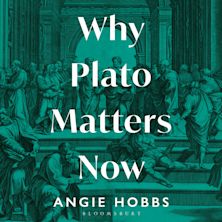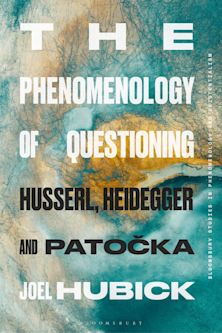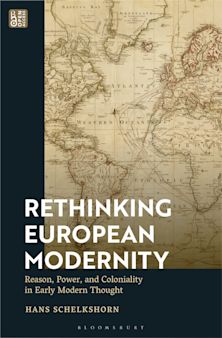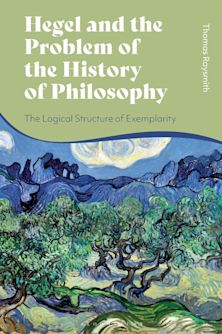- Home
- ACADEMIC
- Philosophy
- History of Philosophy
- Unframing Martin Heidegger’s Understanding of Technology
Unframing Martin Heidegger’s Understanding of Technology
On the Essential Connection between Technology, Art, and History
Unframing Martin Heidegger’s Understanding of Technology
On the Essential Connection between Technology, Art, and History
This product is usually dispatched within 2-4 weeks
- Delivery and returns info
-
Flat rate of $10.00 for shipping anywhere in Australia
You must sign in to add this item to your wishlist. Please sign in or create an account
Description
This book presents a new and radical interpretation of some of Martin Heidegger’s most influential texts. The unfamiliar interpretations all seek to question and unframe hasty assessments of the concepts and constellations of thoughts surrounding Heidegger’s notion of modern technology. Heidegger’s impressive work still hides many treasures and strange thoughts giving original insights into the rise of biotechnology, transgressions between art and technology and the writing of Western history. By way of surprising thought experiments, critical questioning, allusions and systematic conclusions, this book presents Heidegger’s thoughts on technology in a way that not only shows his importance for philosophy and modern society, but also identifies his shortcomings and uses his original thoughts and concepts against him.
Table of Contents
The Essence of Modern Technology
Chapter 1
Martin Heidegger’s Question Concerning Technology
A Question about the Free Relationship
The Essence of Modern Technology Thought of as Enframing
The Limitations of Technology
Chapter 2
Modern Technology As The Offspring Of Enframing: The Reproduction Of Modern Technology
Under the Rule of Enframing
The Self-Movement of Physis
Phenomenology of Enframing
Chapter 3
Toward an Understanding of Essence
Heidegger’s Concept of Essence
The Total Mobilization of Beings
A Matter of Time
Part II
Technology in the Context of Art
Chapter 4
“The Origin Of The Work Of Art”
“Out of the Dark Opening”
The Truth on the Work
The Truth in the Work
Chapter 5
The Truth of Technology
The Mystery of the Work of Art
Art in the Work of Technology
Dangerous Art
Part III
The Story Between Nature and Art
Chapter 6
The Genealogy of Modern Technology
Techne vs. Modern Technology
This History of Metaphysics
Two Approaches Critiquing Modernity
Chapter 7
Alternative Genealogies
The Characteristic of Beings
Biotechnology
Toward the Origin of Modern Technology
Chapter 8
Adjustment
A Timely Work of Art
“Where the Saving Power is, the Danger also Grows”
The Other Beginning
Product details
| Published | 15 Aug 2018 |
|---|---|
| Format | Hardback |
| Edition | 1st |
| Extent | 276 |
| ISBN | 9781498567664 |
| Imprint | Lexington Books |
| Dimensions | 236 x 161 mm |
| Series | Postphenomenology and the Philosophy of Technology |
| Publisher | Bloomsbury Publishing |
About the contributors
Reviews
-
As for the evocative title of his book, Søren Riis’ objective is to ‘unframe’ Heidegger’s concept of enframing. His book offers an exegetically precise reading of QCT but also, and more importantly, a novel way of interpreting it by examining some of Heidegger’s other works. . . . Riis’ book can contribute to a serious discussion on why and how Heidegger’s QCT is read and taught in many departments.
Metascience
-
The Danish philosopher Søren Riis is one of the authorities I trust most when it comes to Heidegger. He has a rare combination of scholarly mastery of Heidegger's texts and up-to-date awareness of the latest trends in the philosophy of technology. His respect for the reader's intelligence also makes reading his works an unusually pleasant experience. I am delighted to see this work finally being published in English.
Graham Harman, Southern California Institute of Architecture
-
A faithful, painstaking and subversive many-worlds rereading of Heidegger. It might be Heidegger’s ‘supreme danger,’ but perhaps enframing is not so bad after all.
Andrew Pickering, University of Exeter



































